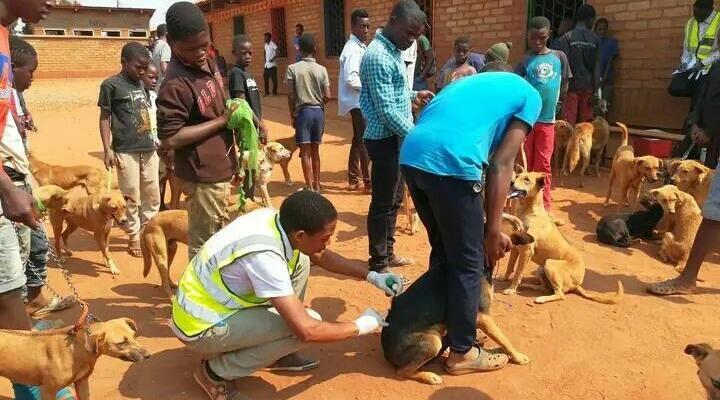
By Michael Chiotcha
The Lilongwe Society for the Protection and Care of Animals (LSPCA) says poor waste management could fuel the spread of rabies in the country.
Speaking in an interview with Malawi 24 reporter, LSPCA communications officer Gracious Chimbalanga said free roaming dogs feed food in the dumping sites, which are easily accessible through poor waste management.
“Dogs mate uncontrollably in these sites, leading to over breeding, most of these Dogs live their entire life unvaccinated. The more unvaccinated they live, the easier rabies keep spreading,” Chimbalanga said.
He said in order to prevent the over-breeding of these dogs, waste should be kept in a protected fenced area, not easily accessed by stray dogs.
“As a country we need to do a lot more to ensure proper waste management is achieved, which will reduce the number of stray dogs in our cities,” he said.
Chimbalanga further said that proper waste management should be ideal especially in markets with poor waste collection systems. He noted that unprotected and very few waste collection points are problematic.
He further said that the public needs to be sensitized about responsible waste disposal and management.
He also suggested for a changed attitude towards garbage and waste in order to improve waste management.
“We need to reuse, reduce and recycle. We need to ensure that waste is disposed off properly and not dumped at open sites. As a country we also need to improve our waste collection and management systems,” said Chimbalanga.
Rabies is a deadly virus that is spread to people from the saliva of infected animals.
Rabies is spread through bites of any mammal. Dog bites contribute up to 99% of all rabies transmission to humans.
Rabies is fatal and attacks central nervous system if not treated.
“Rabies can be treated. However, time is of the essence, the longer one waits with treatment the higher the fatality rate is,” said Chimbalanga.
The Lilongwe Society for the Protection and Care of Animals (LSPCA) is the largest animal welfare organization in Malawi that focuses on domestic, livestock and working animals. Established in 2008, it works with the government and other partners to deliver programme’s of veterinary care, animal welfare education and training, to advocate for implementation and enforcement of policies and legislation to promote animal welfare.














